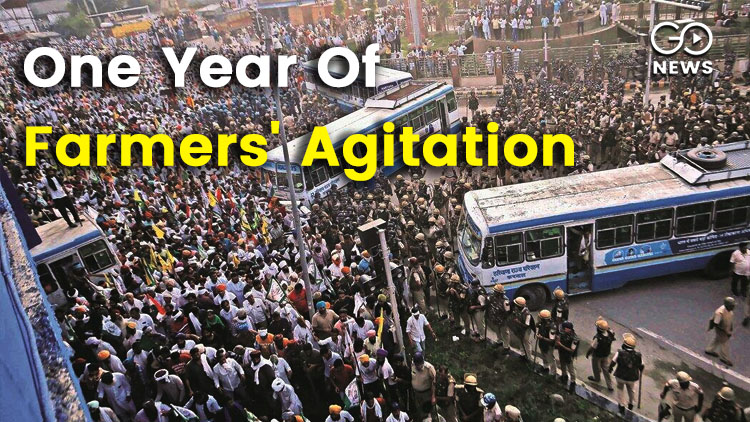Farm Laws Agitation Completes One Year, Movement Going Strong

The agitation by farmers across India against the three contentious ‘farm laws’ has completed a year since its inception. The AAP and Shiromani Akali Dal (SAD) have marked today as “Black Friday” in protest against the Bill. While the government has claimed that these are important “reforms” intended to benefit farmers, farmers themselves have argued that this facilitates a “corporate takeover” of the agricultural sector.
The names of the three Acts popularly known as “farm laws” are:
It is significant that the new legislations were introduced during the peak of the coronavirus pandemic when urgent relief measures were being anticipated. Today, Punjab CM Capt. Amarinder Singh of the Congress party has called on the Centre to scrap the laws and listen to the demands of the farmers.
- Farmers' Produce Trade and Commerce (Promotion and Facilitation) Act, 2020
- Essential Commodities (Amendment) Act, and
- The Farmers (Empowerment and Protection) Agreement on Price Assurance and Farm Services Act.
It is significant that the new legislations were introduced during the peak of the coronavirus pandemic when urgent relief measures were being anticipated. Today, Punjab CM Capt. Amarinder Singh of the Congress party has called on the Centre to scrap the laws and listen to the demands of the farmers.
It is also notable that the demand for this “reform” was not initiated by farmers themselves. On the contrary, agitations related to various issues like input costs, MSP (minimum support price), and loan waivers, delayed payments, low insurance coverage etc. had been ongoing since much before the anti-farm laws protests:One more farmer laid down his life at #FarmersProtest site; the toll of farmers, who lost their lives at Delhi borders, has crossed 620. Will you have the decency to acknowledge these deaths, @PMOIndia, or as you have done till date, you will try to brazen your way out. pic.twitter.com/H9bhYgP9Zd
— Ramandeep Singh Mann (@ramanmann1974) September 17, 2021
- 2017 Tamil Nadu Farmers Protest At Jantar Mantar
- 2017 Mandsaur agitation which saw 6 farmers killed
- 2018 Mumbai protests in which farmers walked 180 km. from Nashik to Mumbai
- 2018 Farmers’ march to Parliament in Delhi
- Being seen as a mechanism whereby state-controlled marketplaces or mandis will eventually be bypassed and dismantled.
- The government has ‘expanded’ the permissible area for trading agricultural goods outside the designated mandis to “any place of production, collection, aggregation”.
- Allows pre-arranged contracts between farmers and private parties
- Imbalance of power between farmer and buyer.
- In the name of “assured income” at the time of sowing, farmers will be exposed to exploitative practices such as unfair terms and rejection of produce, delayed payments, and insufficient redress mechanisms
- Farmers forced to settle disputes through bureaucracy instead of judiciary. A Conciliation Board will be appointed by the Sub- Divisional Magistrate. The Act bars civil courts from deciding on disputes.
- Controls over hoarding and over stocking relaxedand will only be triggered by a 100% rise in cost of perishables and 50% rise in that of non-perishables.
- This will lead to rising prices and loss of control over which crops farmers can grow as private mandis will decide both according to their own interests.
Latest Videos
















